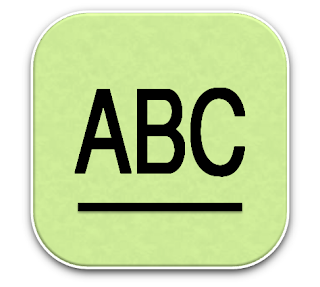It was written in 1842 by French Roman Catholic Jean Baptiste Francois Pompallier, (1802-1871), who was the first Roman Catholic bishop of New Zealand.
The original hymn had 14 verses, although only some of them are shown here: if you have a source for the others, please leave a message in the Comments section near the bottom of the page.
With meter 87.87 with refrain, it is almost-always sung to the tune PRECIOUS NAME, attributed to American Baptist businessman and Gospel-hymn writer W Howard Doane (1832-1915). This tune is also used for the hymn "Take the Name of Jesus with You", which raises a question or two:
Many variations of the tune and text are used in different communities: echoing / repeating phrases, adding harmonies - and even ways of pronouncing the words so that they fit the tune. This is a natural part of the "folk process", but it makes it harder for groups from different places to sing together. In 2021, the New Zealand Catholic Bishops' Conference released two videos:
ō tātou waiata,
Kia kaha rā tātou,
kia nui te aroha.
Chorus:
Mō Maria aianei,
ō tātou waiata,
Kia kaha rā tātou,
kia nui te aroha.
Meaning: For Mary now, our songs. Let us be strong, let there be great love.
Kei ā koe te Atua;
I whiriwhiria ko-e
Hei Whaea pū anō mō
Hē hu Atua pono.
Meaning: The Lord is with you, you are chosen as Mother of God.
Kia mahara pū ko-e
Ki te kupu i meinga,
E Hēhu Kerito anō i
Runga i te Rīpeka.
Meaning: Be mindful of the words spoken by Jesus as he hung on the cross.
E te wahine mamae,
Tēnei rā tōu Tama
Kai rongo, e Hoane,
Tēnei tōu whaea.
Meaning: Sorrowing mother, behold your son. John "This is your mother".
Tenā hoki ngā ahere
E whakahonore ana
Ki to ratou rehina
Ki a Maria anō rā.
Meaning: There are also the angels giving honour to their queen, to Mary.
Aroha kie te Atua
Aroha ki a Maria
I te Rangi, i te whenua
āke tonu, āke tonu.
Meaning: Love God, love Mary, in heaven and on earth, for ever and ever.
The original hymn had 14 verses, although only some of them are shown here: if you have a source for the others, please leave a message in the Comments section near the bottom of the page.
With meter 87.87 with refrain, it is almost-always sung to the tune PRECIOUS NAME, attributed to American Baptist businessman and Gospel-hymn writer W Howard Doane (1832-1915). This tune is also used for the hymn "Take the Name of Jesus with You", which raises a question or two:
- If the tune was written by Pompallier or a contemporary (perhaps adapted from an existing Maori tune, or another tune known in New Zealand at the time), then how did it get to Doane, and how did he manage to publish it without anyone realising he had borrowed it?
- Or, if this was not the original tune, then what tune was used when the text was written in 1842 and why was it changed?
(There is a similar question about how the tune for Pokarekare Ana, written in New Zealand in the early 20th century, came to be used for A Mhuire Mháithair, a hymn which is equally beloved in Ireland.)
Many variations of the tune and text are used in different communities: echoing / repeating phrases, adding harmonies - and even ways of pronouncing the words so that they fit the tune. This is a natural part of the "folk process", but it makes it harder for groups from different places to sing together. In 2021, the New Zealand Catholic Bishops' Conference released two videos:
- This one tells the story of the waiata / hymn,
- Another (shown first in the videos below) has the words on-screen and a confident group performance: the bishops hope it will provide standard pronunciation and phrasing which everyone can use.
Downloads
This section may contain affiliate links: I earn from qualifying purchases on these. Free downloads are provided where possible (eg for public domain items).Examples
Unaccompanied whole-school performance by a kura
This was recorded in the Hokianga, the area of New Zealand where Bishop Pompallier said the first Mass: The Catholic bishops have suggested using this as the standard pronunciation and phrasing for the hymn.Unaccompanied, performed by sports team outdoors
Performed by a sports team in an international departures area, accompanied by light guitar and boarding calls
Group of seminarians, unaccompanied
Lead singer, backing singers and electronic keyboard backing
This is a more-professional recording, but has some less-common pronunciation / phrasingSATB choir, unaccompanied in concert performance
For comparison, an instrumental version of "Take the Name of Jesus with You"
Lyrics
Mō Maria aianei,ō tātou waiata,
Kia kaha rā tātou,
kia nui te aroha.
Chorus:
Mō Maria aianei,
ō tātou waiata,
Kia kaha rā tātou,
kia nui te aroha.
Meaning: For Mary now, our songs. Let us be strong, let there be great love.
Kei ā koe te Atua;
I whiriwhiria ko-e
Hei Whaea pū anō mō
Hē hu Atua pono.
Meaning: The Lord is with you, you are chosen as Mother of God.
Kia mahara pū ko-e
Ki te kupu i meinga,
E Hēhu Kerito anō i
Runga i te Rīpeka.
Meaning: Be mindful of the words spoken by Jesus as he hung on the cross.
E te wahine mamae,
Tēnei rā tōu Tama
Kai rongo, e Hoane,
Tēnei tōu whaea.
Meaning: Sorrowing mother, behold your son. John "This is your mother".
Tenā hoki ngā ahere
E whakahonore ana
Ki to ratou rehina
Ki a Maria anō rā.
Meaning: There are also the angels giving honour to their queen, to Mary.
Aroha kie te Atua
Aroha ki a Maria
I te Rangi, i te whenua
āke tonu, āke tonu.
Meaning: Love God, love Mary, in heaven and on earth, for ever and ever.




No comments:
Post a Comment